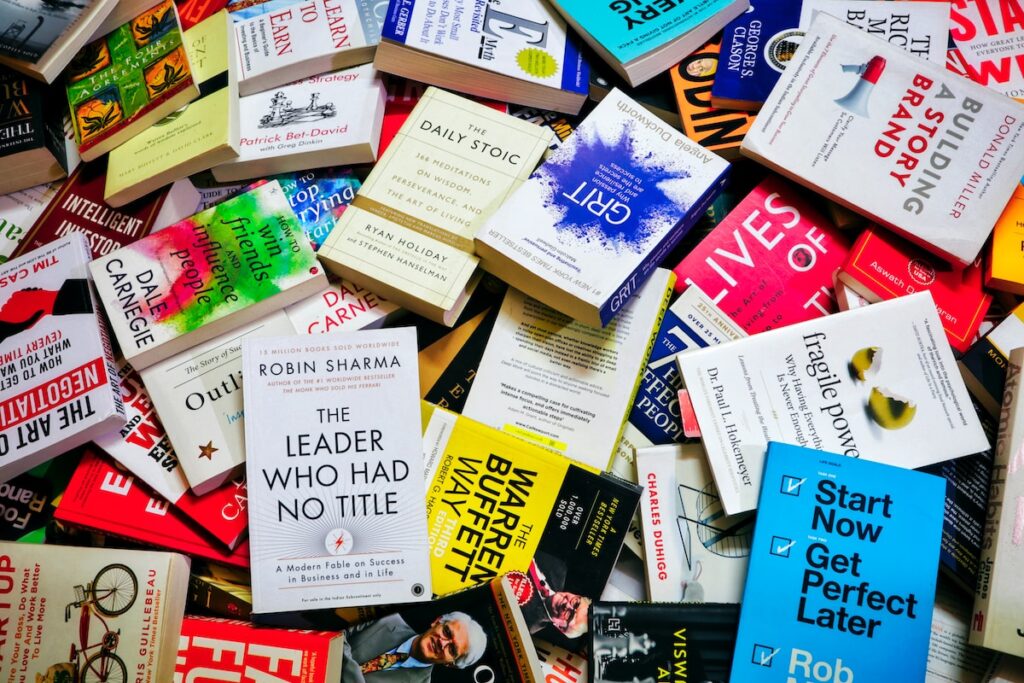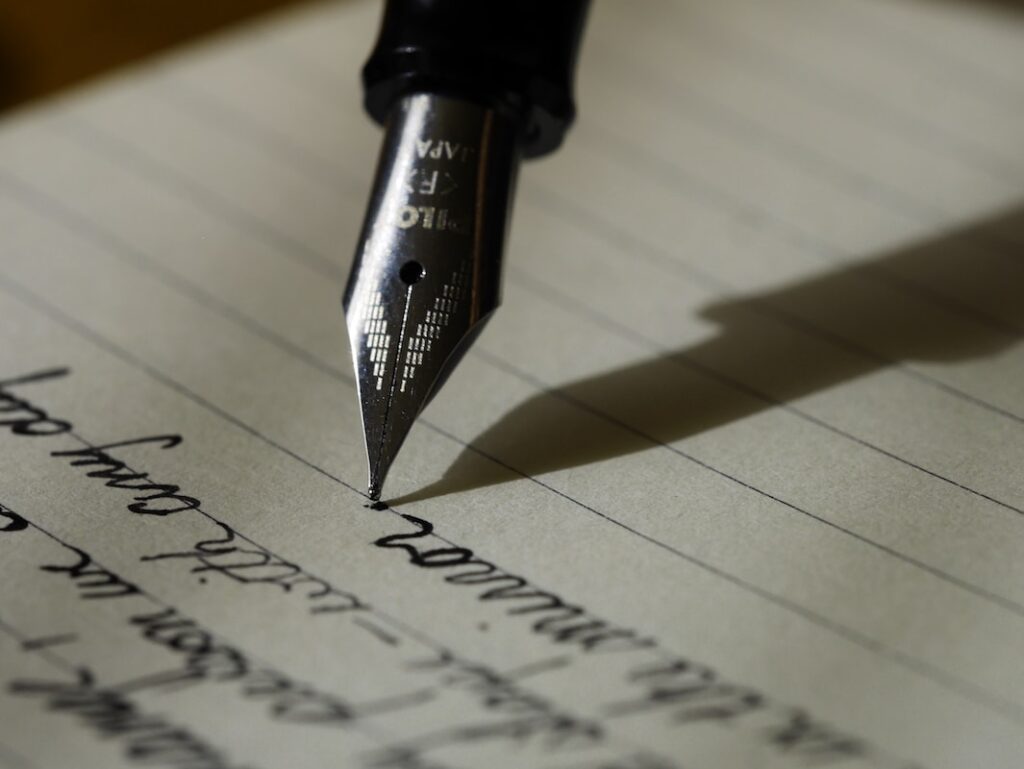Writing Fiction appeals to so many people because of its boundless creative potential. Who wouldn’t want to construct entirely new worlds with just their imagination? However, despite its appeal, fiction writing remains an elusive skill that many aspire to but have trouble mastering.
Fortunately, with deliberate practice and persistence, fiction writing is a learnable skill. This comprehensive guide reveals the exact steps you need to take to write fiction that engages readers and brings your creative vision to life. Read on to learn how to craft compelling characters, settings, plots and themes to write your own fiction book or story.

Choose Your Fiction Genre and Get Familiar With It
Writing Fiction encompasses a diverse range of genres, each with its own conventions and reader expectations. Before you begin writing, you need to decide what genre you want to write in. Some major fiction genres include:
- Literary fiction – Focus is on character development and emotional arcs rather than plot. Explores profound or complex themes.
- Science fiction – Speculative stories incorporating futuristic science, technology, space travel, etc.
- Fantasy – Stories featuring magic, mythical beings, alternate worlds, etc.
- Romance – Focus is on the romantic relationships between characters.
- Mystery – Revolves around a puzzling event that must be solved.
- Horror – Aims to evoke fear or disgust through supernatural or disturbing events.

Once you decide on a genre, read extensively within it to understand its typical narrative structures, character archetypes, settings, themes and writing style. This will prime you to write effectively for your target readers. For example, romance readers expect happy endings with positive resolutions to the main romantic relationship.
Develop Multi-Dimensional, Relatable Characters
While writing fiction, at the heart of most good fiction are characters that feel real. Readers need to relate to and care about your protagonists in order to become invested in the story.
When creating characters:
- Give them detailed backstories – These should highlight important life events that shaped their personality, beliefs, goals and motivations.
- Establish unique voices and perspectives – Give each main character a distinctive way of seeing the world and speaking that sets them apart.
- Make them emotionally complex – Portray a full spectrum of emotions and have them wrestle with difficult conflicts related to their desires, relationships, beliefs etc. Ensure they have dimension beyond just being “good” or “bad”.
- Let them drive the action – The main characters’ motivations and actions in pursuing their goals should propel the plot forward. Things happen because of their choices.
Creating detailed character profiles as you write helps keep characters consistent and lifelike. They summarize key biographical details, personality traits, goals, fears and other information about a character on a single page for easy reference.

Construct an Imaginative Fictional World
While characters may get top billing, the setting can make or break your fictional world. As the writer, you get to design how the world looks, what the rules are and what’s possible within it. This gives you immense creative power.
When crafting your setting:
- Map out locations – Identify the places that feature prominently in your book and describe their physical geography and architecture. Provide enough sensory details for readers to visualize it.
- Establish time period – Make clear when the story takes place whether in the past, present or future. Weave in historical context and cultural elements appropriate for the time.
- Define technology, culture and social rules – Outline what is considered normal or possible related to technology, social customs, power structures etc. in your fictional society. This grounds readers in how your world operates.
- Create glossaries if needed – For complex fantasy or sci-fi worlds with extensive worldbuilding, define unfamiliar terms related to politics, magic systems, technologies etc. in a glossary to help readers understand your story.

Maintaining consistency in your worldbuilding helps readers immerse themselves fully in your fictional universe without getting jarred out by contradictions.
Outline a Compelling Plot That Keeps Readers Hooked
At its essence, plot refers to the sequence of events that occur in your fictional story. A strong, well-structured plot engages readers from beginning to end by building tension, raising stakes and prompting urgent questions that get answered through each plot development.
Follow these steps essential to crafting a riveting plot:
1. Establish Story Goals, Conflict and Tension
At the outset, introduce your protagonist and establish their chief goal or ambition that will drive the story events. Then introduce sources of conflict and tension that prevent them from easily achieving this goal. Common conflict types include:
- Person vs. Person – Protagonist battles rivals or antagonists
- Person vs. Society – Protagonist confronts unjust cultural norms or laws
- Person vs. Self – Protagonist wrestles with inner weaknesses, fears or compulsions
- Person vs. Nature – Protagonist struggles against harsh environments or disasters
2. Outline Plot Structure and Key Story Beats
Nearly all fiction plots conform to a structure with distinct story beats in writing fiction. The most common is the “Three Act Structure” comprised of:
- Act 1 (Setup) – Introduces characters and world. Foreshadows the central conflict. Ends when a “catalyst moment” propels the protagonist into the main story problem.
- Act 2 (Confrontation) – Series of events where protagonist tries to resolve the central conflict but faces escalating obstacles. Raises story stakes. Ends when protagonist realizes must change strategy.
- Act 3 (Resolution) – Final confrontation leading to climax where protagonist battles opposition. Conflict is resolved, questions are answered. Loose ends are tied up.
Map out your key plot points while writing fiction within this high-level structure, along with probable character actions and reactions.
3. Writing Fiction: Raise the Stakes
In fiction writing, as the story progresses, continue to amplify plot tension and conflict. The protagonist should face ever greater challenges that increase the significance associated with either achieving or failing their goal. The stakes can escalate through bigger adversaries, unexpected betrayals, enlarged threats if they lose, harsh ticking time pressures etc. High stakes rivet reader attention.

4. Advance With Twists and Turns
Readers lose interest if plot events become too predictable so keep this in mind while writing fiction. Keep them on their toes by incorporating plot twists – surprising revelations that jolt readers’ expectations and force characters to reconsider strategies. Useful twist techniques include introducing secret villain motives, unveiling “man behind the curtain” masterminds, killing off main characters unexpectedly etc.
Red herrings are another great device for spikes in plot tension in the process of writing fiction. These involve false leads that suggest one outcome is imminent when in fact things will unfold differently than implied.
5. Satisfy With an Impactful Resolution
All the plot tensions build towards the climax where questions raised throughout finally get addressed. Ensure sure the eventual success or failure of main character goals has significant personal consequences. The protagonist should undergo important change due to all they experience pursuing their goal.
Leave some threads open to set up sequels while writing fiction. But the major questions must get definitive answers so readers achieve a satisfying closure yet also crave what happens next.
Develop Compelling Themes That Resonate
Themes are the central messages or big ideas embedded within your fictional narrative in writing fiction. Great fiction not only entertains through plot and character but also comments meaningfully on the human experience.
Weave themes organically throughout your process of writing fiction by having characters grapple with universal life questions related to purpose, morality, love, death, suffering, obedience vs. defiance etc. Show how they draw conclusions, evolve in their thinking or crystallize their worldviews around these philosophical issues.
Execute themes with nuance. Pose difficult questions without definitive right/wrong answers. Portray shades of grey via complex character motives and rationalizations for their stances. This prompts self-reflection rather than preaching blunt messages to readers.

Master the Mechanics of the Fiction Writing Craft
Beyond characters, plot and theme, several key techniques characterize skilled writing fiction:
• Show Don’t Tell – Demonstrate characters feelings and personality through their words, actions, body language and decisions rather than explaining abstractly. For example, instead of writing “John was devastated about his dog dying”, describe John sobbing uncontrollably, refusing to eat for days, unable to get out of bed, clutching his dog’s collar, staring blankly ahead etc.
• Nail Your Opening Hook – First sentences and opening paragraphs must instantly intrigue readers and foreshadow exciting story developments ahead.
• Establish Point of View – Decide whether to tell the story through the lens of one character or alternate between perspectives of multiple relevant characters. Then ensure consistency.
• Blend Dialogue and Described Action – Too much dialogue without breaks can seem artificial. Break it up with body language, environmental cues and thoughts conveyed through descriptive narration.
• Show Passing Time – Use sections demarcated with ***** or “~~~” to compress segments where little happens, avoiding tedious real-time play-by-plays.
• Foreshadow Significantly – Drop hints that set up important later events without giving everything away immediately or being too obvious. This builds anticipation.
• Create Cliffhangers – Leave each chapter at a suspenseful, dramatic moment to compel readers into the next chapter. Think shocking revelations, danger heightened or critical conflicts unleashed.
Beyond these storytelling techniques, carefully polish your writing itself sentence-by-sentence. Tighten superfluous verbiage. Vary sentence structure and length to improve flow. Choose words and imagery that convey precise meaning and imaginative metaphors.
Edit Unsparingly Then Gather Feedback From Trusted Sources
The first draft of any fiction writing is guaranteed to be subpar. But resist editing too soon before getting the basic ideas fleshed out. Once you have an initial complete draft, the real work begins. Set the manuscript aside for a short break then come back to revise with a critical eye towards weaknesses in:
- Plot logic – Check for inconsistencies, dangling loose ends, convenient coincidences etc. and smooth them over.
- Structure and pacing – Assess if scenes drag, revelations come too early or too late and improve flow.
- Dialogue credibility – Make conversations sound natural according to characters backgrounds and personalities.
- Grammar and spelling errors – Run through editing software as a first pass but closely read yourself for mistakes.

Next, enlist trusted English-literate friends or writers group peers to critique your draft for what engages or bores them. Implement their constructive feedback in further revisions. Repeat this process several times until the storytelling, characters, style and themes feel polished.
Be prepared to ruthlessly cut or rewrite entire swaths of text if needed. Perfection is unattainable but diligent revision separates good fiction from mediocrity.
Join a Writers Community for Support and Accountability
Writing Fiction requires immense personal discipline to power through the inevitable creative blocks and self-doubts. Surrounding yourself with supportive communities who hold you accountable makes it far easier to persist.
Options to explore include:
- Writers workshops – Local groups who share work for constructive feedback
- Online forums – Platforms like Scribophile or Absolute Write to exchange writing and critiques
- Blogs and courses – Veteran authors share behind-the-scenes tips for overcoming writer struggles
- Conferences – Engage with professionals across the publishing industry
- Paid coaching – Get focused guidance tailored to your precise fiction needs

Use these resources to troubleshoot plot issues, brainstorm ideas, stay motivated and gain insight into turning writing into a viable career.
Commit to a Consistent Writing Fiction Routine
Like any skill, exceptional fiction writing hinges on practicing regularly versus trying to binge-write a manuscript in a few weeks. Establish a sustainable routine that allows you to write incrementally every single day. Reliable habits produce far more results long-term than sporadic binge sessions.
Ideal routines entail writing at the same time daily in locations with minimal distractions. Even just 300 words per day eventually compounds into an entire book over months. Reward yourself for consistency perhaps by tying daily writing quotas to pleasurable activities like watching a favorite TV show.
Use tools like website blockers to eliminate online distractions during sacred writing periods. The key is preventing writing from continually getting deprioritized behind other obligations. Carve out non-negotiable writing time that gives you freedom to build fictional worlds at your own pace.
Start Submitting Your Work and Getting Published
As you dive more into writing fiction and nurture your creative skills, start sharing your work with the world. While the path to publication varies, common first steps include:
- Submit short stories to literary magazines and contests
- Self-publish story collections on Amazon KDP and Kindle Direct Publishing
- Pitch your book idea via queries to literary agents, who broker deals with mainstream publishers
- Leverage platforms like Wattpad to serialize longer form writing and build a readership

Websites like Duotrope and Submission Grinders list markets currently accepting fiction submissions if going the literary magazine route. Top sites for self-published authors include Amazon, Draft2Digital and Smashwords. Research literary agents extensively to find ones open to your genre before querying.
Getting published can be arduous but persevere. Talent unrecognized at first frequently finds audiences over time. The most vital milestones are finishing what you write and continuously mastering your storytelling abilities through practice. Stay persistent and believe in your fiction writing dreams. Consistent effort inevitably produces growth and your bestwriting lies ahead even if presently unrealized.
The creative fruits harvested from deliberate writing fiction practice make the hard work worthwhile. This guide outlined key skills to hone at each stage of conception, writing, revision and publication. Let it provide direction to transform your inventive ideas into riveting stories enjoyed by multitudes. The fictional worlds await you. Start writing and make them wonderfully real.
Call to Action
Ready to start writing fiction stories? Get instant access to over 100 time-tested fiction writing exercises covering plotting, characterization dialogue and more inside our free Fiction Writing Starter Kit. Over 15,000 writers have used these exercises to take their fiction to the next level. Click here to claim your copy today!








